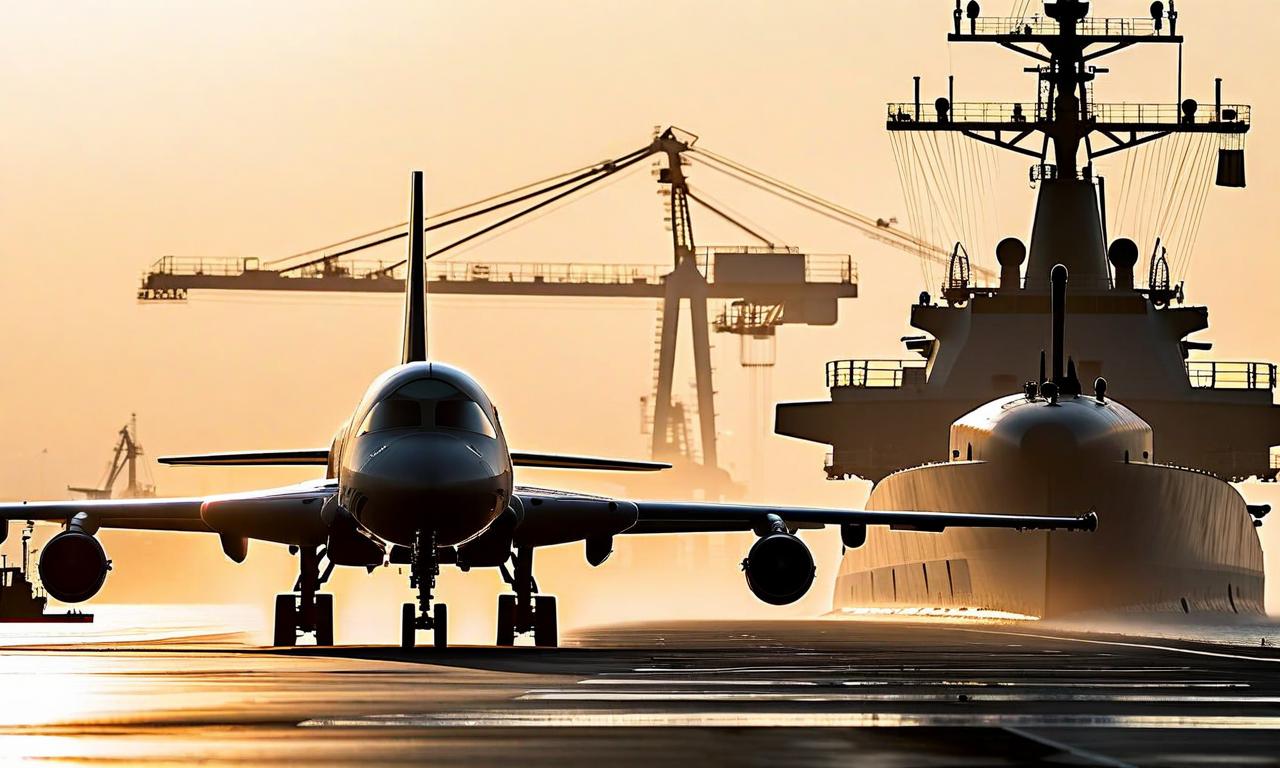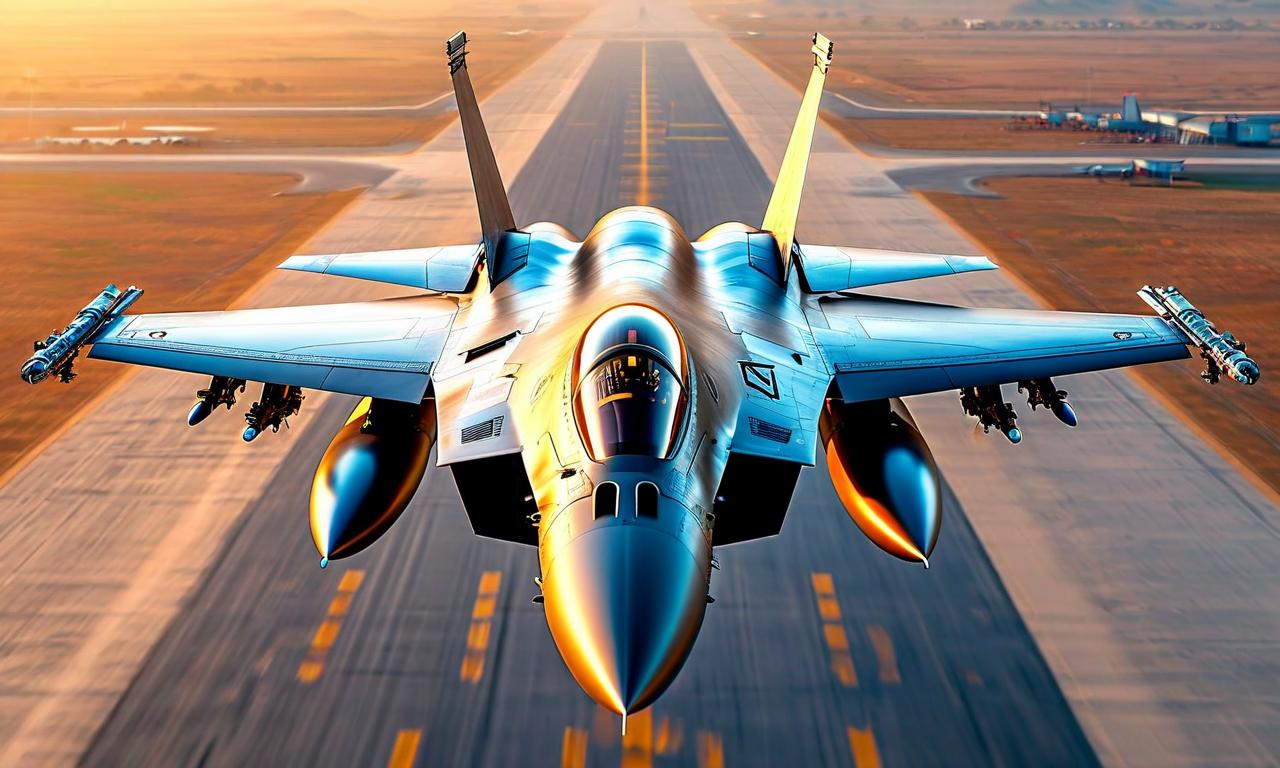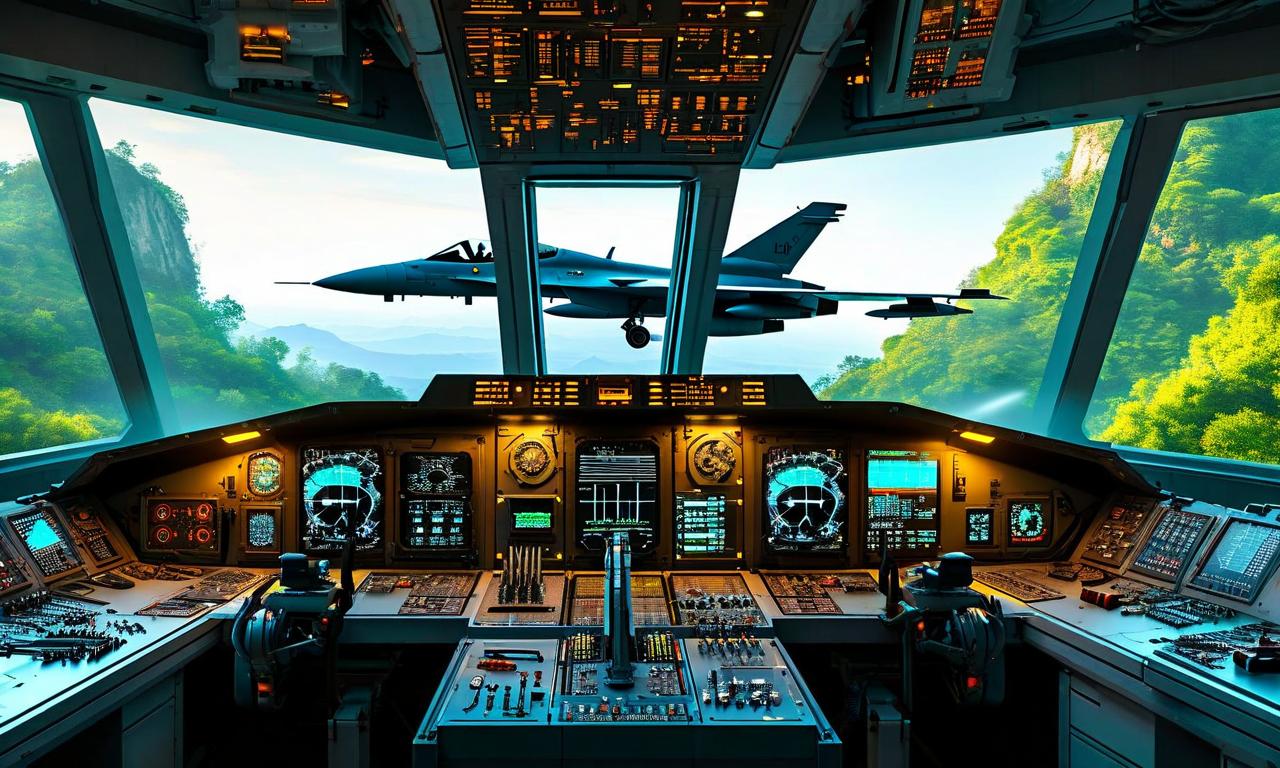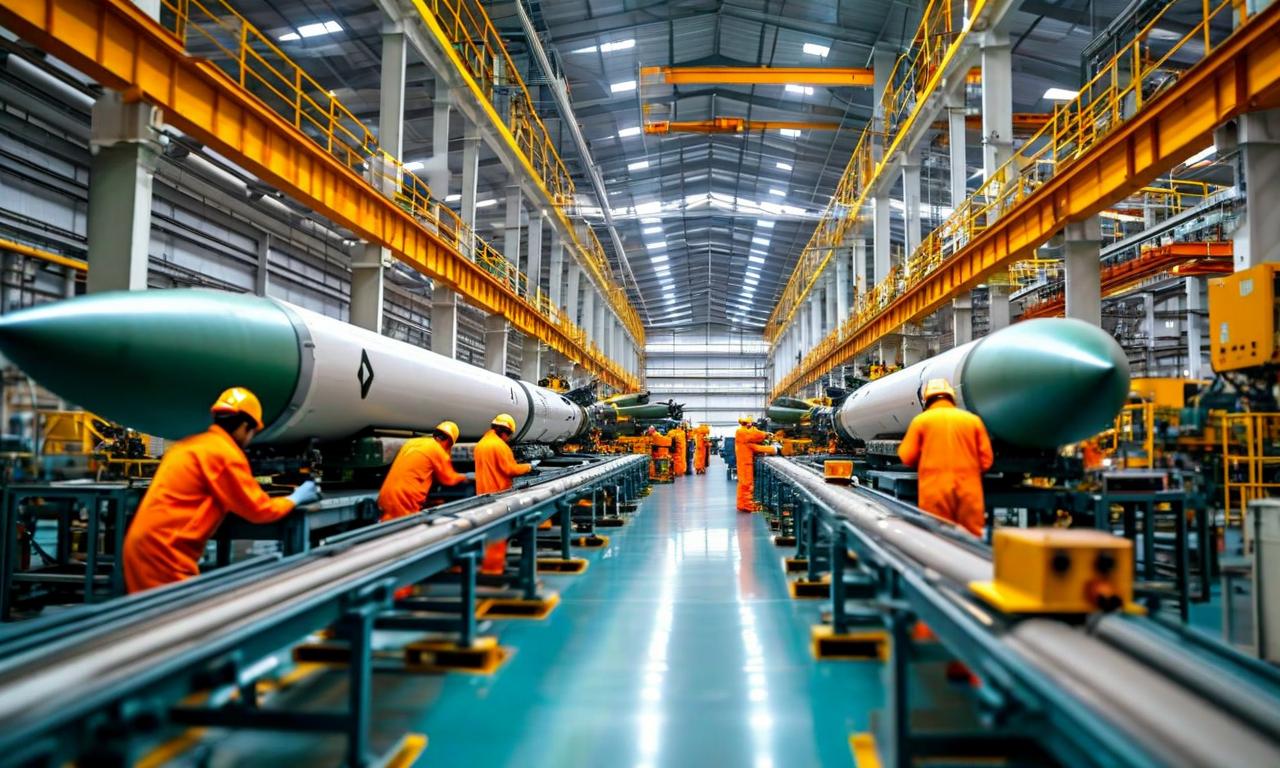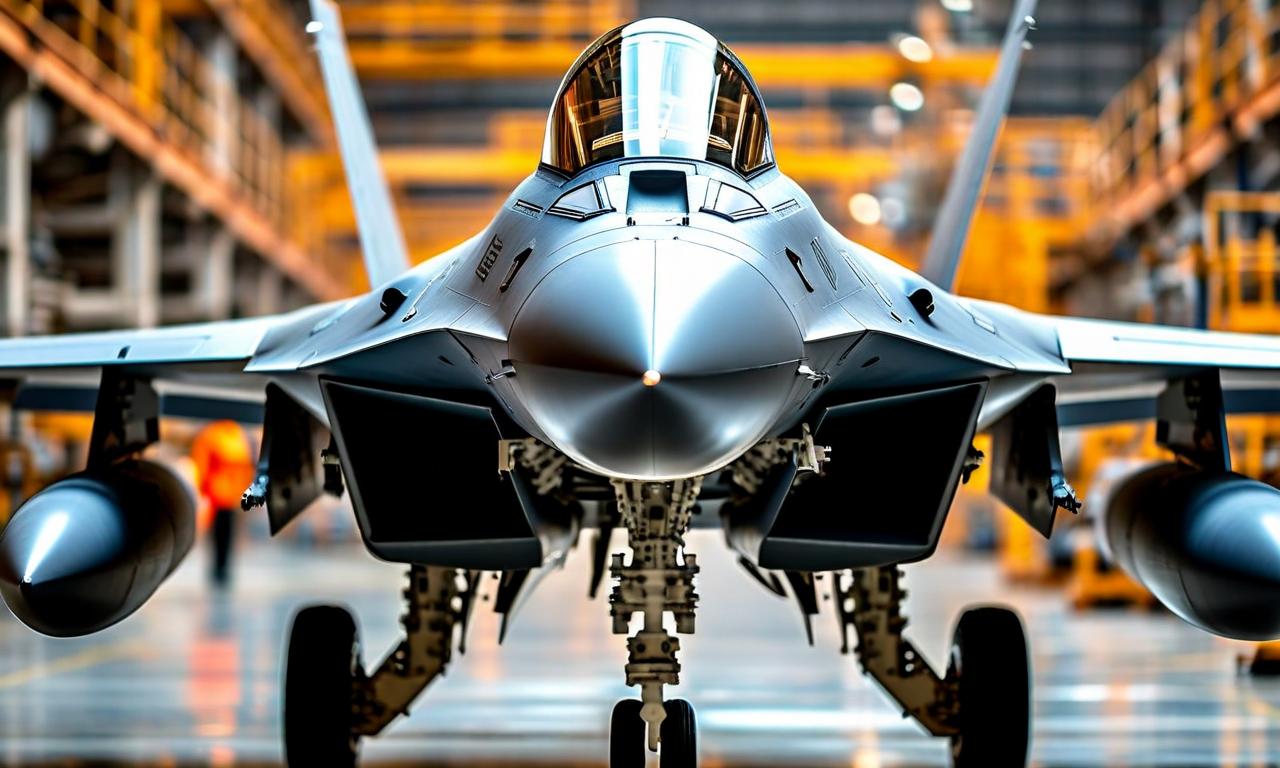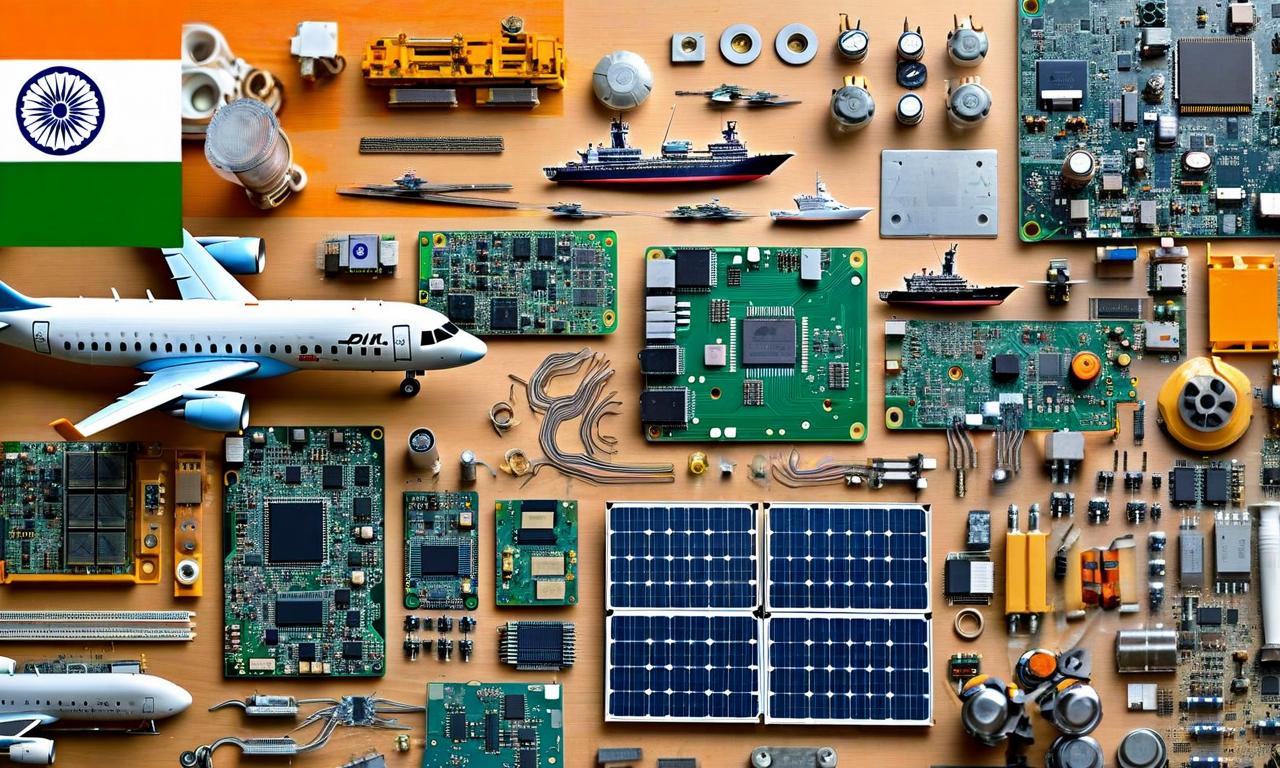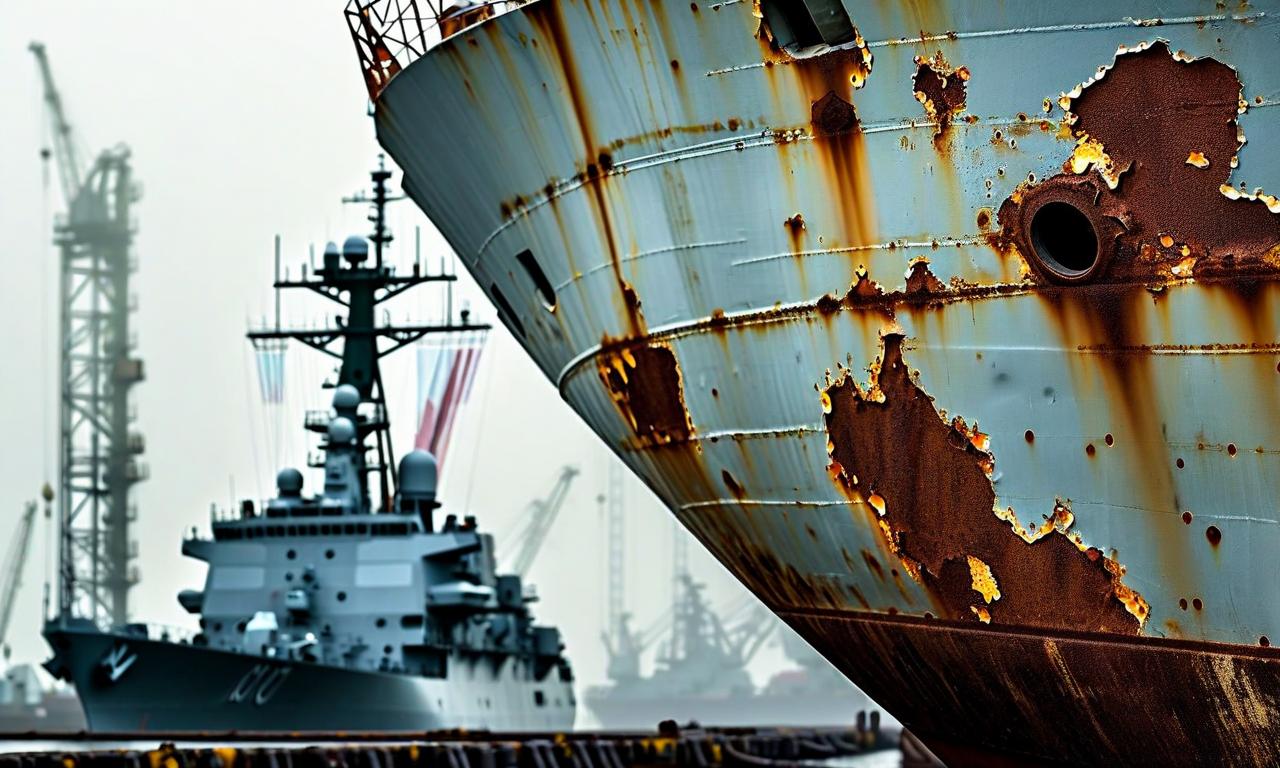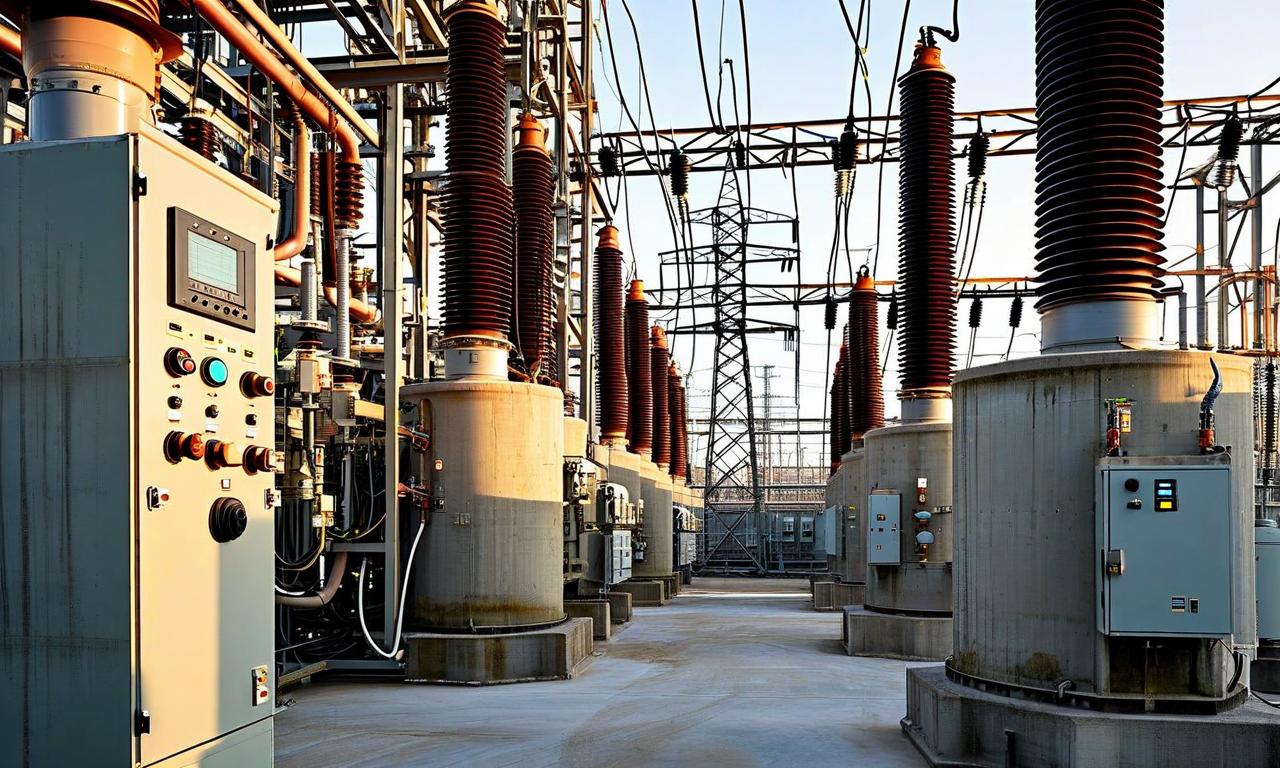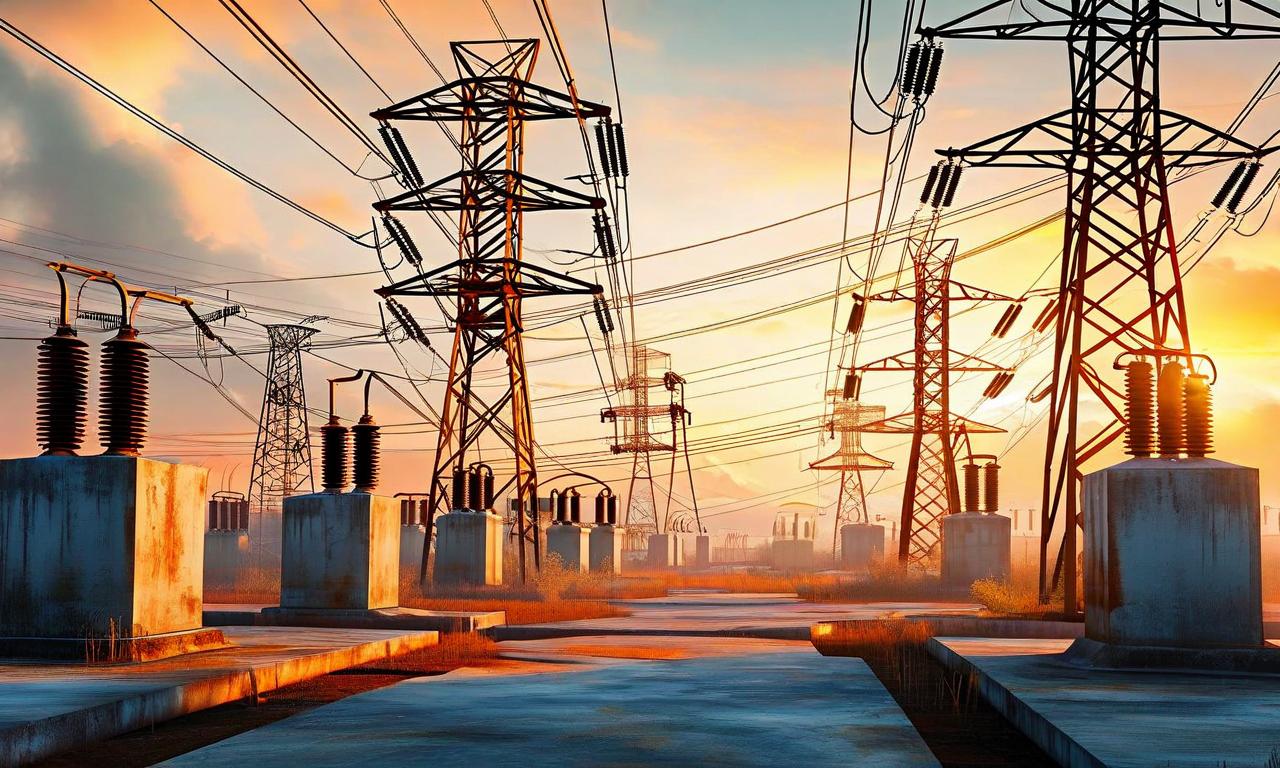Defence Stocks Soar Rs 43,000 Crore as Nifty Defence Index Hits 8-Week High
Defence stocks experienced a significant rally, with the Nifty Defence index climbing 4.30% to an eight-week high of 8,041. The sector added Rs 43,000 crore to its market value in a single trading session. Weekly gains for the index reached nearly 8%, its strongest performance in four months. Both PSU companies and private players contributed to this surge, with individual stocks gaining up to 10%. The rally coincides with submarine negotiations and the Ministry of Defence's 15-year modernisation plan announcement. Key players like HAL, Mazagon Dock, and Cochin Shipyard have substantial order books, indicating strong future prospects. Technical indicators suggest a potential shift in momentum for defence stocks. Experts highlight the sector's long-term growth potential but caution about near-term visibility already reflected in valuations.
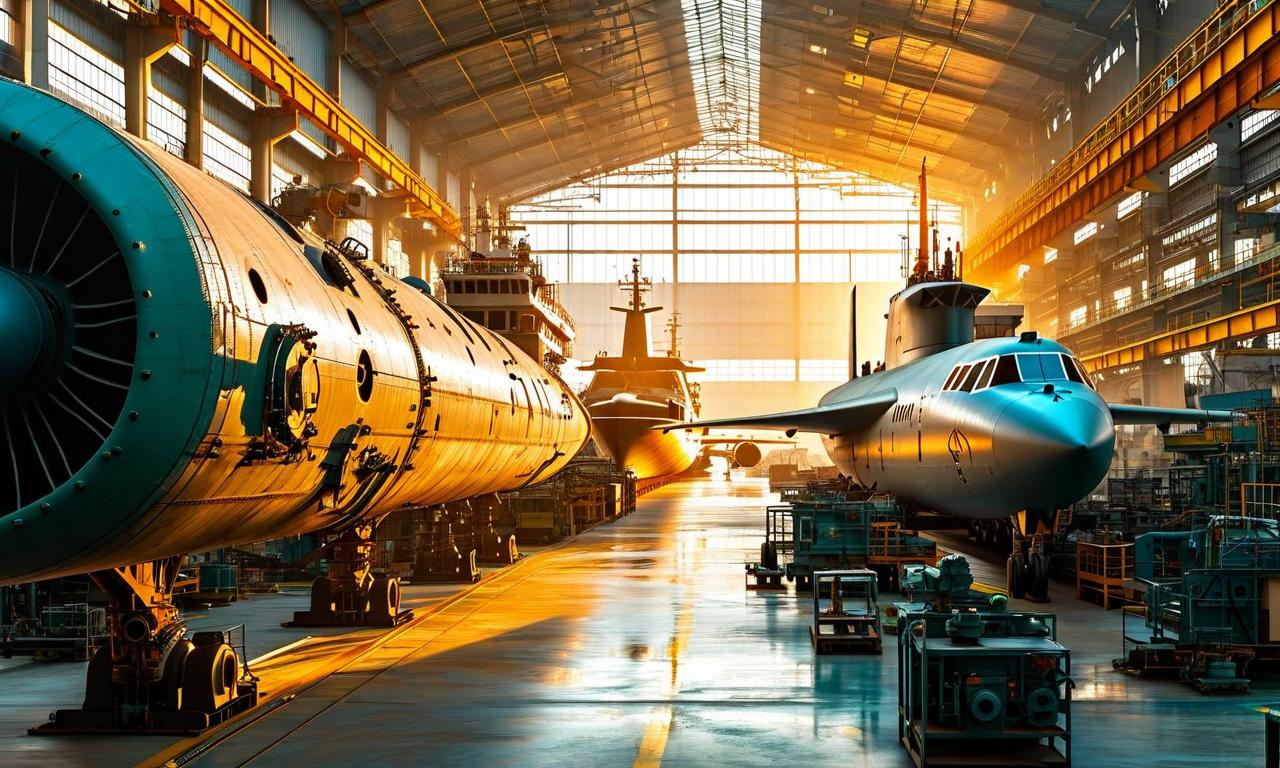
*this image is generated using AI for illustrative purposes only.
In a remarkable display of investor confidence, defence stocks witnessed a significant surge during Friday's trading session, adding a staggering Rs 43,000 crore to their market value. The Nifty Defence index climbed 4.30% to reach an eight-week peak of 8,041, underscoring the sector's strong performance.
Weekly Gains and Standout Performers
The defence sector's robust showing was not limited to a single day. The Nifty Defence index posted weekly gains of nearly 8%, marking its strongest performance in four months. This upward trajectory was led by a mix of public sector undertakings (PSUs) and private players:
- PSU companies: GRSE, Bharat Dynamics, and Cochin Shipyard
- Private players: MTAR, BEML, and Astra Microwave
Individual stocks in these categories saw impressive gains of up to 10%, contributing to the sector's overall strong performance.
Catalysts for the Rally
The surge in defence stocks coincides with two significant developments:
Submarine Negotiations: Talks have begun for six next-generation conventional submarines, potentially opening up new opportunities for defence manufacturers.
Ministry of Defence's Modernisation Roadmap: On September 5, the Ministry announced a 15-year modernisation plan, setting the stage for long-term growth in the sector.
Substantial Order Books
Market analysts have pointed out the robust order books of key players in the defence sector:
| Company | Order Book Value |
|---|---|
| HAL | Rs 2 lakh crore |
| Mazagon Dock | Rs 50,000-70,000 crore |
| Cochin Shipyard | Rs 50,000-70,000 crore |
These substantial order books indicate a strong pipeline of projects and potential revenue streams for these companies.
Technical Indicators
The Nifty Defence index has shown positive technical signals:
- Breaking a downward trendline
- Moving above key averages
- Daily Relative Strength Index (RSI) crossing 60 for the first time since June
These indicators suggest a potential shift in momentum for defence stocks.
Long-term Growth Prospects and Cautionary Note
Experts emphasize the long-term structural growth story of the defence sector, driven by government initiatives to promote domestic defence manufacturing. However, they also caution that near-term visibility may already be reflected in current valuations.
As the defence sector continues to evolve under the government's 'Make in India' initiative, investors and industry watchers will be keenly observing how these market movements translate into sustained growth and development in India's defence manufacturing capabilities.


